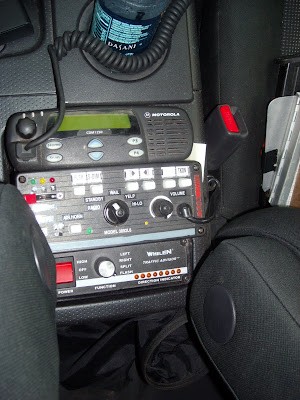There’s a lot of information circulating about using your car radio antenna for a police scanner, and it’s important to separate fact from fiction. Let’s clarify some key points to help you understand how to effectively utilize your vehicle’s antenna to boost your scanner’s performance.
Scanner Legality: Know Your Local Laws
Before you consider setting up a police scanner in your vehicle, it’s crucial to understand the legal landscape. In some regions, it is against the law to possess a radio receiver capable of picking up police transmissions within your car. However, many jurisdictions with such regulations often provide exemptions for licensed amateur radio operators and individuals involved in emergency services. It’s your responsibility to verify the specific laws in your state or area regarding scanner legality. Always consult official legal resources and avoid relying on online forums or message boards for legal advice.
Antenna Mounting: Simple and Effective
Mounting an antenna for your police scanner is a straightforward process, very similar to installing antennas for ham radio or CB radios. The general principle for scanner antennas is that optimal performance is achieved with greater height. If you’re dedicating your car’s antenna solely to your scanner and not adding another radio system, a Bandi mount can be an excellent and convenient solution. When selecting an antenna, ensure it comes with an SO-235 connector, as opposed to an NMO type, to ensure compatibility with standard Bandi mounts without needing modifications.
The Impact of an External Antenna: A Definite YES!
Does using an external antenna significantly improve your scanner’s reception? The answer is an emphatic YES! While the small, stock “rubber duck” antenna that comes with your handheld scanner might pick up signals within your car, its effectiveness is often limited. This is especially true in areas with weaker signal density. Furthermore, if you are monitoring an 800MHz trunked radio system, an external antenna becomes even more beneficial. It dramatically improves the scanner’s ability to receive the “control channel,” which is vital for the scanner to properly follow conversations across different talk groups. An external car radio antenna, properly connected to your scanner, will make a world of difference in signal clarity and range.
Choosing the Right Scanner for Your Needs
The market offers a wide array of police scanners, each with different features and capabilities. Some users prefer the stability and integration of a permanently installed, hardwired scanner in their vehicle. Others value the versatility of a portable scanner that can be used both in the car and on the go. A popular setup involves using a portable scanner, like a PRO-97, connected to an external antenna mounted on the vehicle’s roof. This provides excellent mobile reception while allowing for easy removal for home use. For those considering a hardwired installation in a vehicle like an FJ Cruiser, the center console cubby is often an ideal location. This placement, similar to how law enforcement agencies sometimes mount their radios, offers a clean and functional setup.
 Police scanner mounted in a car's center console, demonstrating a potential installation location when using a car radio antenna for improved reception.
Police scanner mounted in a car's center console, demonstrating a potential installation location when using a car radio antenna for improved reception.
Programming and Finding Information
For comprehensive information on all aspects of police scanners, including mounting techniques, programming instructions, and local frequencies, RadioReference.com is an invaluable online resource. This website is a vast repository of scanner-related knowledge, helping you maximize the potential of your scanner setup.
Using your car radio antenna for a police scanner is a practical way to significantly enhance reception and expand your monitoring capabilities. By understanding the legal aspects, proper mounting techniques, and the benefits of an external antenna, you can enjoy a much improved scanning experience. If you have further questions about radios or antenna mounting, don’t hesitate to seek out additional resources or expert advice.
